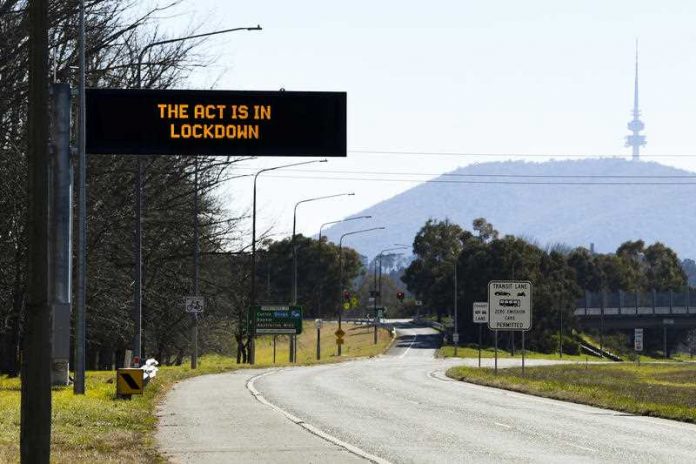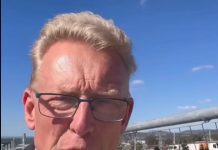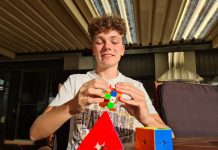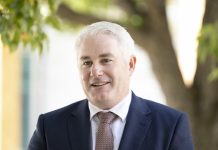
As ACT authorities continue to investigate how COVID-19 came to take hold in the Territory, Canberrans have been warned against speculating on social media.
The ACT’s Chief Police Officer Neil Gaughan would not comment on whether ACT Policing were looking into a potential breach of public health directions that led to the initial COVID case, saying police had “a lot” of enquiries underway.
“I see that there’s a lot of focus on one individual, I think that’s really dangerous,” Mr Gaughan said.
“It’s not a kangaroo court. There are offences under Commonwealth legislation in relation to naming people on social media, so I ask people to be very cautious about what they’re posting.
“Over time, we will look at whether there has been any breach by any person, and I’m not going to talk about individual cases.”
Mr Gaughan also urged people to be honest with ACT Health about where they’ve been when contacted by contact tracers.
He said ACT Police had not yet issued any infringements for breach of the ACT’s lockdown rules since they came into effect yesterday evening but had spoken to some people about their activities.
The outbreak has now grown to six active cases, one of them a 14-year-old student at Gold Creek School.
Chief Minister Andrew Barr said while questions about how COVID-19 came to the ACT would be answered in due course, the Territory’s main focus is on getting information about exposure sites and close contacts.
“There will be time to examine the backstory, the history, and how this came to being, but right now that’s not the most important thing.”
Mr Barr also refused to comment on speculation swirling around the Territory about the initial case’s movements prior to testing positive.
“We will address those sorts of issues later, but that is entirely unimportant at the moment because it will do absolutely nothing to address the situation that we face today.
“There’s a time for those issues, but not today.
“The most important thing is what we can do today, tomorrow, and over the weekend, to ensure that we get to the close contacts, get them in isolation. Particularly people who are testing positive, so that they are not a risk to infecting more people in the community.”








